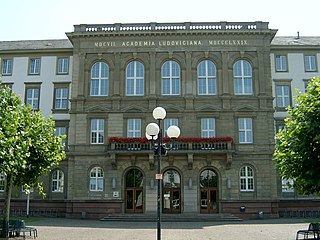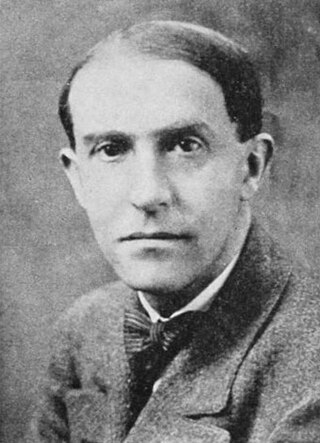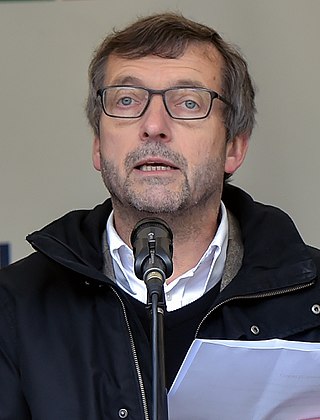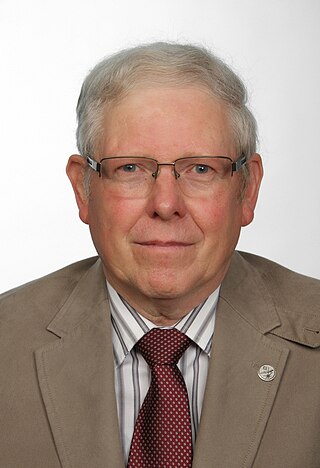
Justus Freiherr von Liebig was a German scientist who made major contributions to the theory, practice, and pedagogy of chemistry, as well as to agricultural and biological chemistry; he is considered one of the principal founders of organic chemistry. As a professor at the University of Giessen, he devised the modern laboratory-oriented teaching method, and for such innovations, he is regarded as one of the most outstanding chemistry teachers of all time. He has been described as the "father of the fertilizer industry" for his emphasis on nitrogen and minerals as essential plant nutrients, and his popularization of the law of the minimum, which states that plant growth is limited by the scarcest nutrient resource, rather than the total amount of resources available. He also developed a manufacturing process for beef extracts, and with his consent a company, called Liebig Extract of Meat Company, was founded to exploit the concept; it later introduced the Oxo brand beef bouillon cube. He popularized an earlier invention for condensing vapors, which came to be known as the Liebig condenser.

Giessen, spelled Gießen in German, is a town in the German state (Bundesland) of Hesse, capital of both the district of Giessen and the administrative region of Giessen. The population is approximately 90,000, with roughly 37,000 university students.

The Philipps University of Marburg is a public research university located in Marburg, Germany. It was founded in 1527 by Philip I, Landgrave of Hesse, which makes it one of Germany's oldest universities and the oldest still operating Protestant university in the world. It is now a public university of the state of Hesse, without religious affiliation.

University of Giessen, official name Justus Liebig University Giessen, is a large public research university in Giessen, Hesse, Germany. It is one of the oldest institutions of higher education in the German-speaking world. It is named after its most famous faculty member, Justus von Liebig, the founder of modern agricultural chemistry and inventor of artificial fertiliser. It covers the areas of arts/humanities, business, dentistry, economics, law, medicine, science, social sciences and veterinary medicine. Its university hospital, which has two sites, Giessen and Marburg, is the only private university hospital in Germany.

August Wilhelm von Hofmann was a German chemist who made considerable contributions to organic chemistry. His research on aniline helped lay the basis of the aniline-dye industry, and his research on coal tar laid the groundwork for his student Charles Mansfield's practical methods for extracting benzene and toluene and converting them into nitro compounds and amines. Hofmann's discoveries include formaldehyde, hydrazobenzene, the isonitriles, and allyl alcohol. He prepared three ethylamines and tetraethylammonium compounds and established their structural relationship to ammonia.
Nutritional science is the science that studies the physiological process of nutrition, interpreting the nutrients and other substances in food in relation to maintenance, growth, reproduction, health and disease of an organism.

Christopher Donald Frith FRS, FMedSci, FBA, FAAAS is a British psychologist and professor emeritus at the Wellcome Centre for Neuroimaging at University College London. He is also an affiliated research worker at the Interacting Minds Centre at Aarhus University, an honorary Research Fellow at the Institute of Philosophy and a Quondam Fellow of All Souls College, Oxford.

Dame Uta Frith is a German-British developmental psychologist and emeritus professor in cognitive development at the Institute of Cognitive Neuroscience at University College London (UCL). She pioneered much of the current research into autism and dyslexia. Her book Autism: Explaining the Enigma introduced the cognitive neuroscience of autism. She is credited with creating the Sally–Anne test along with fellow scientists Alan Leslie and Simon Baron-Cohen. Among students she has mentored are Tony Attwood, Maggie Snowling, Simon Baron-Cohen and Francesca Happé.

Wilhelm Hanle was a German experimental physicist. He is known for the Hanle effect. During World War II, he made contributions to the German nuclear energy project, also known as the Uranium Club. From 1941 until emeritus status in 1969, he was an ordinarius professor of experimental physics and held the chair of physics at the University of Giessen.

Karl Robert Sommer was a german psychiatrist and genealogist born in Grottkau. He is remembered for his work in experimental psychology. He coined the term „Psychohygiene“ in 1901 and founded the „German Association for Psychohygiene“ and the „Society for Experimental Psychology“. He is remembered for his work in experimental psychology. He also published on genealogy, philosophy, and forensics. He was also an active inventor and involved in local politics.
John Charles Cutting is a British psychiatrist specialising in schizophrenia research. He has written a number of books, and articles and reviews in professional journals, on the subjects of psychiatry, clinical psychology, schizophrenia and the functioning of the right cerebral hemisphere of the brain.
Richard N. Aslin is an American psychologist. He is currently a senior scientist at Haskins Laboratories and professor at Yale University. Until December, 2016, Dr. Aslin was William R. Kenan Professor of Brain & Cognitive Sciences and Center for Visual Sciences at the University of Rochester. During his time in Rochester, he was also director of the Rochester Center for Brain Imaging and the Rochester Baby Lab. He had worked at the university for over thirty years, until he resigned in protest of the university's handling of a sexual harassment complaint about a junior member of his department.

Thilo Marauhn is a German expert on international law. He currently holds the professorship for Public Law and International Law at the Justus Liebig University Giessen and heads the research group “International Law” at the Leibniz Institute Hessische Stiftung Friedens- und Konfliktforschung / Peace Research Institute Frankfurt (PRIF). Apart from this, he is a researcher at the Asser Institute and recently appointed as the Special Chair Arms Control Law at the University of Amsterdam.
Peter Richard Schreiner is a German chemist who is a professor at Justus Liebig University Giessen. As of 2022, his h-index is 73.

Sven Simon is a German law professor and politician who has been serving as a Member of the European Parliament since 2019. He previously taught international and European law at Philipps University of Marburg. In the 2019 European Parliament election he was the lead candidate for the Christian Democratic Union Hessen.
Andreas Meyer-Lindenberg is a German psychiatrist and professor in the Medical Faculty Mannheim at Heidelberg University. He is also the director and CEO of the Central Institute of Mental Health in Mannheim, as well as medical director of their Department of Psychiatry and Psychotherapy. His research includes work on the genetics of complex psychiatric disorders. He has also used neuroimaging to study the neurobiological basis of mental disorders such as Williams Syndrome, and the effects of living in urban areas on mental health and the human brain.

Kurt Koffka was a German psychologist and professor. He was born and educated in Berlin, Germany; he died in Northampton, Massachusetts, from coronary thrombosis. He was influenced by his maternal uncle, a biologist, to pursue science. He had many interests including visual perception, brain damage, sound localization, developmental psychology, and experimental psychology. He worked alongside Max Wertheimer and Wolfgang Köhler to develop Gestalt psychology. Koffka had several publications including "The Growth of the Mind: An Introduction to Child Psychology" (1924) and "The Principles of Gestalt Psychology" (1935) which elaborated on his research.

Walter Rosenthal is a German physician, pharmacologist & science manager, and President of the German Rectors' Conference since May 2023. Prior to that, he was the President of the Friedrich Schiller University Jena (2014-2023). From 2009 to 2014, he was the foundation board member and scientific director of the Max Delbrück Center for Molecular Medicine (MDC) in Berlin-Buch. From 1996 to 2008 he headed what is today the Leibniz Research Institute for Molecular Pharmacology (FMP).
Klaus Fiedler is a German psychologist who teaches as a professor for social psychology at the Universität Heidelberg.

Hans Geissel was a German experimental physicist who studied the atomic and nuclear interaction of energetic heavy ions with matter. In particular, his research focused on the discovery of new isotopes and the investigation of their properties. Geissel was an adjunct professor at the II Institute of Physics at JLU Giessen and was head of the FRS / Super-FRS department at the GSI Helmholtz Centre for Heavy Ion Research in Darmstadt, where he was a Helmholtz Professor.














